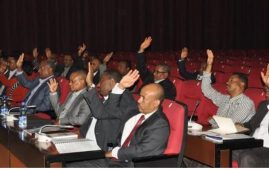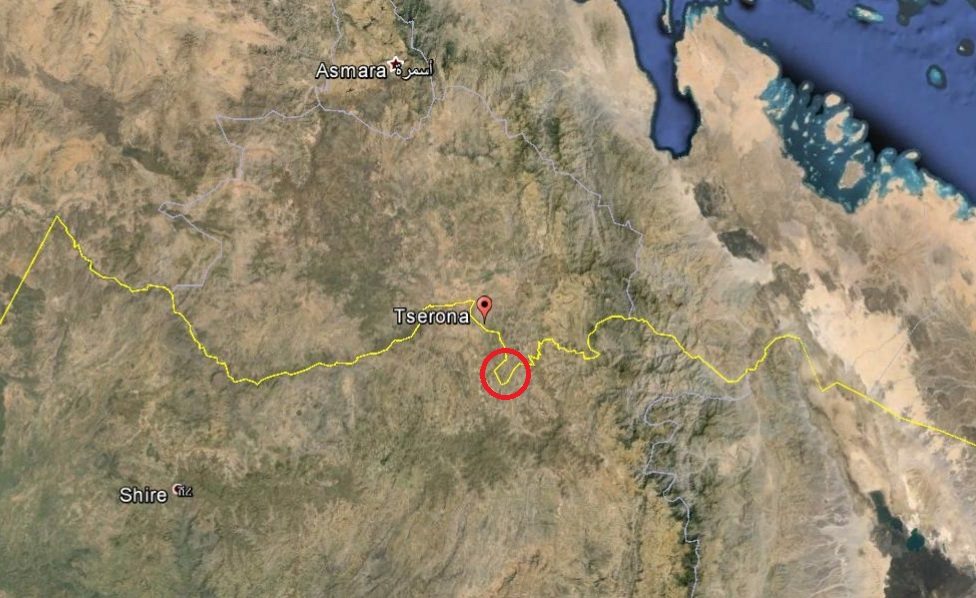In an address to the UN General Assembly on Monday (September 30), Eritrea’s Foreign Minister, Osman Saleh Mohammed, said the United Nations was debilitated by chronic weaknesses and shortcomings and must be reformed. He told the Assembly that “The 21st century requires a revitalized United Nations that transcends a bipolar or uni-polar world order and that is firmly rooted in the supremacy of, and respect for, international law and order.” His call for UN reform, however, was specifically attached to the issue of the sanctions imposed on Eritrea in 2009. He urged the Assembly to bring an end to what he called the invasion of Eritrea, to lift the sanctions imposed on Eritrea and to terminate interventions that jeopardize the peace and stability of the Horn of Africa.
Mr. Osman claimed the current conditions the Eritrean people suffered from were the result of the way that the United Nations had ignored the pleas of the Eritrean people over two generations, and of the effect of a world order driven by the rivalry of domineering super-powers which used Eritrea as a pawn in the wider Horn of Africa/Middle East chessboard. The “transgressions that have been perpetrated against the people of Eritrea and other peoples in the past 20 years speak to the persistence of an unfair and unjust global order and the absence of a strong and representative United Nations.” High among these transgressions were the “unlawful sanctions” imposed by the Security Council in 2009 as a result of the reports of the UN Monitoring Group on Eritrea and Somalia. The mandate of the monitoring group which investigates compliance with sanctions against Somalia and Eritrea was extended earlier this year to November 2014.
Mr. Osman’s list of the “unjust and distorted policies from which Eritrea has suffered for the last twenty years,” included border conflicts which had no political or legal justifications as well as the problem over Badme on the border with Ethiopia, which “continued to simmer for 11 years due to obstructive violations by the US Administration.” He made, of course, no reference to the fact that Eritrea’s border conflicts with Yemen, Djibouti and Ethiopia were all launched by Eritrea itself, nor that all were indeed without any political or legal justification; nor did he mention Eritrea’s persistent efforts at regional destabilization, or more specifically, its efforts to destabilize Ethiopia, over the last decade; nor did he refer to the fact that Ethiopia has been trying unsuccessfully to persuade Eritrea to talk about the implementation of the Boundary Commission’s Decisions of 2002 for nearly ten years. Ethiopian Prime Minister Hailemariam said earlier this year he was prepared to talk to President Isaias anywhere, anytime, even in Asmara. Eritrea, as always, ignored the suggestion.
Mr. Osman claimed the Eritrean people were subjected to a sustained human trafficking campaign. Again unsurprisingly, he made no mention of the fact that Monitoring Group reports have provided incontrovertible and detailed evidence of official Eritrean involvement in cross-border human trafficking operations. He unconvincingly dismissed Monitoring Group’s reports as “widely discredited” and claimed it was on the basis of these that US officials had imposed “unlawful sanctions against Eritrea through the UN Security Council.” Members of the Security Council do not agree nor have others who have looked at the evidence.
***********
Source: Mfa.gov.et – Oct. 4, 2013, titled “Eritrea’s Foreign Minister urges United Nations reform”.





